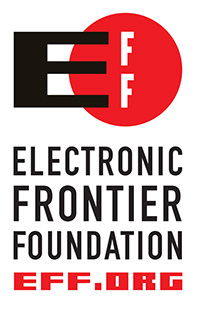
Fast, affordable Internet access for all.

Rep Marsha Blackburn (R-TN) and her love for large corporate ISPs was all over the telecommunications media this week. She attempted to kneecap the FCC as it explores options to restore local telecommunications authority to communities. Blackburn introduced an amendment attacking local options as the House took up general appropriations bill H.R. 5016.
The amendment passed 223-200, primarily along party lines, with most Republican Reps voting with Blackburn and all but two Democrats opposing the amendment.
Democrats voting to support the amendment included Georgia's 12th District's John Barrow and Jim Matheson from Utah's 4th District. If either of these gentlemen represent you, take a moment to call their offices and point out their voting mistake.
Republicans that voted No were Mike Rogers and Mo Brooks from Alabama's 3rd and 5th Districts. Charles Boustany from the 3rd District in Louisiana and Chuck Fleischmann from the 3rd District in Tennessee (includes Chattanooga) also opposed the restriction. If these elected officials represent you, please take a moment to contact them and thank them for breaking ranks to support local authority.
Coverage this week was fast and furious.
Sam Gustin from Motherboard reported on Blackburn's efforts. Gustin checked in with Chris:
"Blackburn's positions line up very well with the cable and telephone companies that give a lot of money to her campaigns," said Mitchell. "In this case, Blackburn is doing what it takes to benefit the cable and telephone companies rather than the United States, which needs more choices, faster speeds, and lower prices."
Mitchell says that he's sympathetic to the arguments against "preemption"—after all, he works for an organization called the Institute for Local Self-Reliance—but points out that while Blackburn opposes the federal government inserting itself into state law, she apparently has no problem with the states telling cities and municipalities what they can and cannot do.
"The argument that Blackburn puts forth is not coherent," Mitchell said. "It's just politics."
Gustin and the International Business Times were only a few of the many reporters that connected the dots between Blackburn's campaign balance sheet and her concern for big ISPs. From IBT:
Blackburn’s top campaign donors include private telecommunications firms that do not want to have to compete with publicly owned ISPs. Her state is home to EPB, a taxpayer-owned power company in Chattanooga that also provides local residents some of the fastest Internet speeds in the world at market-competitive rates. EPB is now aiming to expand its services beyond Chattanooga.
However, to go forward with its expansion plan, EPB needs the FCC to enter the fray, applying its authority to preempt a Tennessee law backed by the private telecom industry that restricts the utility’s ability to move into new regions.
According to campaign finance data compiled by the Center for Responsive Politics, two of Blackburn’s largest career donors are employees and PACs affiliated with AT&T (NYSE:T) ($66,750) and Comcast (NASDAQ:CMCSA) ($36,600). Those are two of EPB’s private-sector competitors in Chattanooga. Blackburn has also taken $56,000 from the National Cable & Telecommunications Association, the lobby for the big telecoms.

Whatever happened to localism or local control? This amendment means the Federal Government will tell every local citizen, mayor, and county council member that they may not act in their own best interests. Any such amendment is an attack on the rights of individual citizens speaking through their local leaders to determine if their broadband needs are being met.
Projects like community mesh networks and mayors’ attempts to bring fiber to their cities should never be illegal or stifled by misguided state laws. On the contrary, they should be encouraged. That’s because community and municipal high-speed Internet projects provide users more options.…Municipal and community broadband projects offer alternatives, so when companies like Comcast and Verizon are behaving badly, users have somewhere else to go. But right now there are 20 states that have laws that make it make it hard or impossible for communities to take their Internet into their own hands.
The underlying argument from Blackburn and friends continues to be that municipal broadband is the devil -- but letting local massive corporations write state telecom laws (laws that often completely eliminate your right to choose for yourself what your town does or doesn't do, while also resulting in less competition, higher prices, and worse customer service) is perfectly ok.
Either way, we’re still glad to see that some patriots in this day and age are still standing up to protect our freedoms from the municipal broadband menace. As certain historical figure might have said were she alive today, “Let them eat dial-up!”
